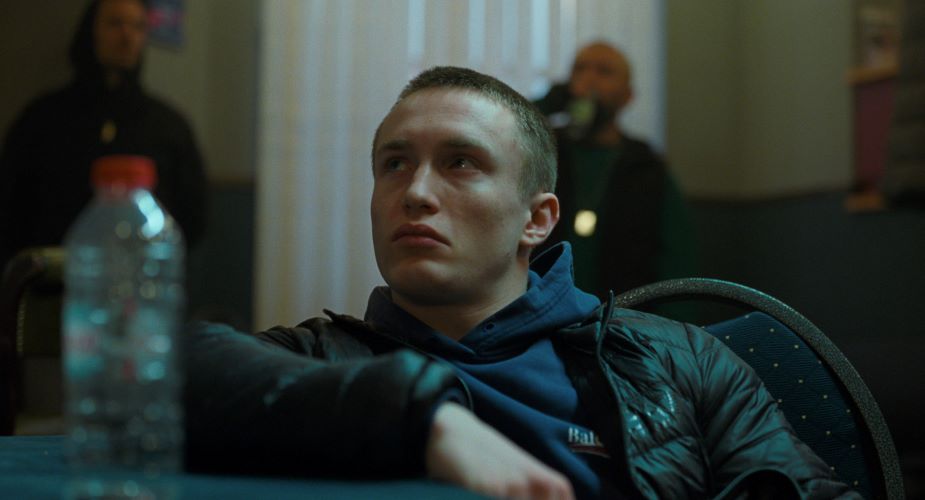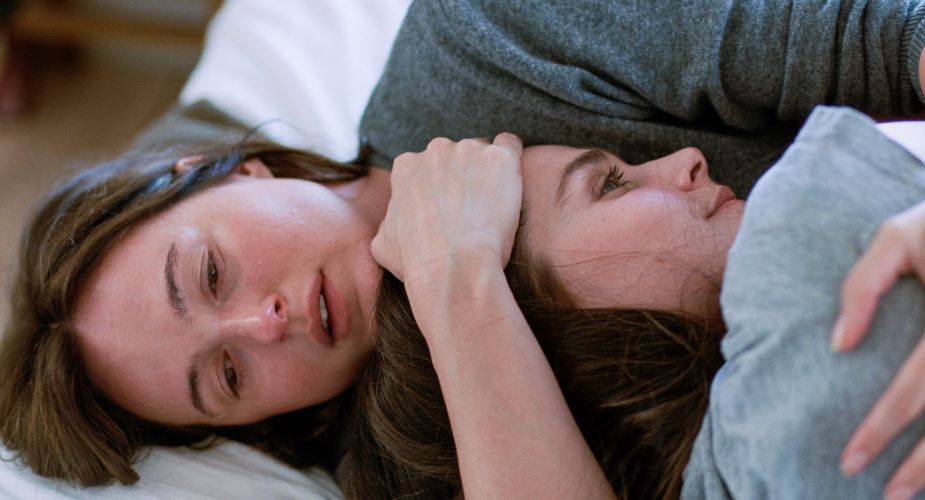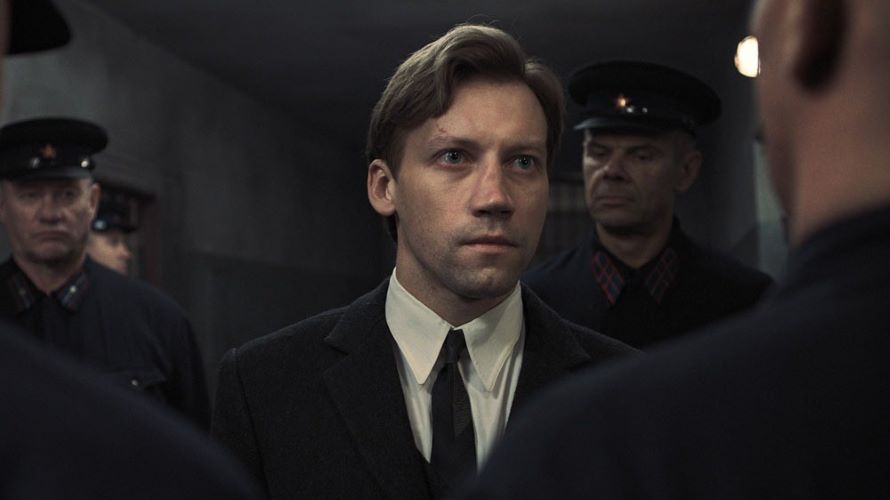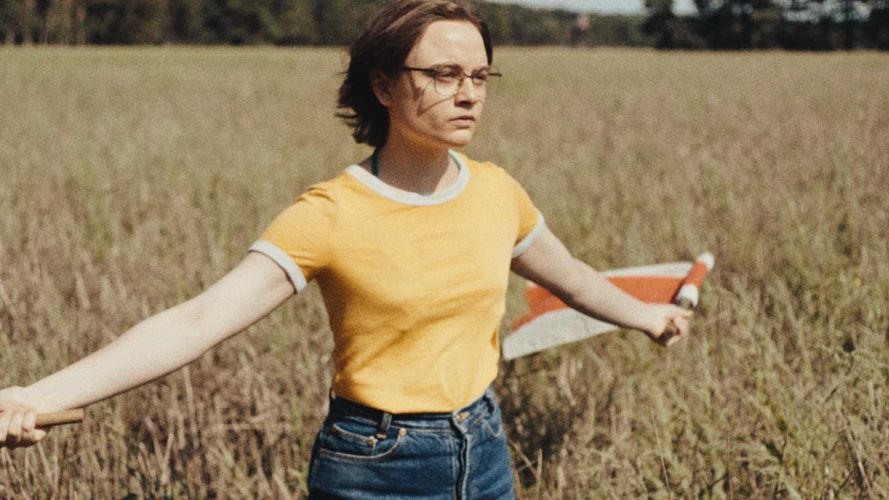The Haifa International Film Festival will take place from October 5 – 14, 2025, with a rich and diverse program of international and Israeli films. The full program and ticket information will be available on the Haifa Film Festival website: https://www.haifaff.co.il/eng.

New this year at the festival is the program “Off the Beaten Path” – a section for “bold, original, creative, cinema.” One of the films in this section, Rain Fell on the Nothing New, directed by Steffen Goldkamp, takes a familiar theme and approaches it in a unique way. David (Noah Sayenko) is serving time in a juvenile detention facility and about to be released. He has a second chance to build a new life – but does he, really? The first scenes, which take place in the detention center, convey the feeling of being incarcerated through the composition of each frame – with images that extend beyond a tightly limited frame or one in which the view is obstructed, as for example, when David is in the laundry room and is seen through the space between another young man’s arm and body. David’s anger, boredom, frustration and tension are expressed through the camera, as well as his features and gestures. Sayenko delivers a strong performance in a film whose visual storytelling enables the viewer to feel David’s experiences.

In Mother, director Teona Strugar Mitevska presents the very human individual behind the mythological figure that is Mother Teresa, who is literally a saint (she was canonized by the Catholic Church in 2016). Far from a typical biopic, the film focuses on 7 critical days in 1948, when the young Mother Teresa was Mother Superior at the convent of the Sisters of Loreto, in Kolkata, India, waiting to hear whether the Vatican would approve her request to start a new religious order. Noomi Rapace (The Girl with a Dragon Tattoo) portrays Mother Teresa with a fiery intensity, that is reflected in the film’s score which features heavy rock guitar distortion. Mother Teresa is intent on her mission and expects the same dedication from her fellow nuns – nuns who join her order will only be allowed to visit their families once every ten years. Yet the film shows her vulnerabilities and doubts as well, which she confides to her friend and confessor, Father Friedrich. She has a close relationship with Polish nun Agnieszka (Sylvia Hoeks), whom she has selected as her successor at the Sisters of Loreto. Agnieszka is gentle and lively, where Mother Teresa is principled and rigid. Yet when Agnieszka reveals a secret, Mother Teresa’s principles and empathy are tested.

Sentimental Value – the new film by Joachim Trier stars Renate Reinsve, who won the Cannes Best Actress Award for her performance in The Worst Person in the World, as Nora, the estranged daughter of filmmaker Gustav Borg (Stellan Skarsgård). Abandoned by their father, who left when they were young girls, Nora and her sister Agnes (Inga Ibsdotter Lilleaas) made very different life choices. Nora pursues a career onstage (despite paralysing stage fright), while Agnes has a more traditional life, she is married with a child and a stable job. Following the death of their mother Sissel, Gustav approaches Nora with an invitation to star in his upcoming film, which he plans to shoot in their family home in Norway. It’s perhaps an attempt to mend relationships, but Nora refuses the role, and it is given instead to an American actress, Rachel Kemp (Elle Fanning). The film follows Gustav and Rachel as they work on the film that was meant for Nora, and the two sisters Nora and Agnes as they navigate the feelings and traumas of the past and present, looking to the future.

Two Prosecutors – from its ominously grim aesthetic to its Kafkaesque narrative, the new film by Sergei Loznitsa, is compelling and chillingly relevant. Featured in the Official Competition at Cannes, the historical drama, is based on the eponymous novel by Georgy Demidov. Set in the Soviet Union of 1937, during the time of Stalin’s purges, prisoners are permitted to appeal, but their letters are bound for destruction. Somehow, the old man tasked with burning the letters decides to hold on to one of them, and it finds its way to a young, idealistic prosecutor. Aleksandr Kuznetsov stars as Kornyev, a prosecutor who feels the responsibility to investigate the matter further and seek justice for the prisoner. Despite efforts to dissuade him, and hours of waiting in corridors, he persists, eventually reaching the chief prosecutor Vyshinsky (Anatoliy Beliy). Beliy relocated to Israel and has performed at the Gesher Theatre, as well as in the Israeli film Halisa. Both Kuznetsov and Beliy deliver outstanding performances, yet although their sparring characters may be equal in intellect and determination, it is clear where the power lies. Although set in 1937, the film represents a dire warning – how democracy can be eroded to the point of obliteration.

Sound of Falling is mesmerizing, vast, and mysterious. Director Mascha Schilinski, who co-wrote the screenplay with Louise Peters, reminds the viewer from the start that our eyes can deceive us, that what we see is not necessarily what is true. Exquisitely detailed and assertively non-linear, the film drifts through time in a German farmhouse, over several decades, focusing primarily on a single protagonist in each era. The youngest, from the earliest period, circa World War I, is Alma (Hannah Heckt), bright and inquisitive with two blond braids, she is innocent enough to voice many of her questions aloud. Why is there a photograph of a dead child that looks so much like her? Death and violence are ever-present, and war, although not for the most part explicitly dealt with, always has an impact. Yet the film itself is sparked by dark humor, playful pranks, and the vivaciousness of youth. All four protagonists – Alma, Erika, Angelika, and Lenka, are young girls, ranging in age from about 9 to late teens, destined to grow into women in a patriarchal culture where women are severely oppressed.
The film is in many ways a reflection on memory, the narratives and trauma passed on from one generation to the next, the stories that live inside the walls. It is a reminder that we are all unreliable narrators of our own lives, and of the world around us, endeavoring to create meaning and fill the gaps left by fragments of images and words, never certain if our memory of an event represents the event itself, or what we hoped or feared.





